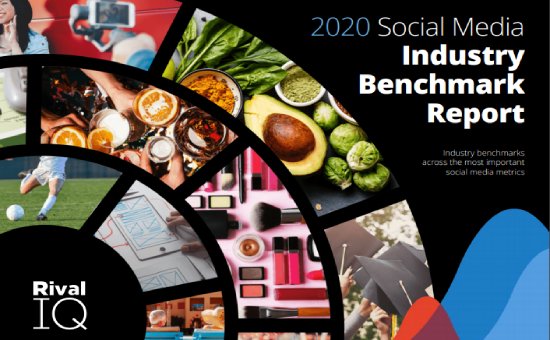Predictions 2024: Exploration Generates Progress | Forrester
Artificial Intelligence
In the landscape of business, Predictions 2024: Exploration Generates Progress signifies a pivotal juncture marked by uncertainty and potential advancement. Much like the intrepid explorers of old, contemporary leaders are tasked with venturing into unexplored realms, driven by technological advancements and guided by strategic foresight.
Central to this expedition is the revolutionary power of generative AI, poised to infiltrate every aspect of consumer life and ignite a fresh era of innovation and creativity.
Exploration Generates Progress
The spirit of exploration has always been synonymous with progress. Like the intrepid sailors navigating the high seas in search of new horizons, today’s business leaders are tasked with charting a course through uncharted waters.
They must forge ahead with unwavering determination, fueled by the promise of technological advancements and the potential for groundbreaking discoveries. In the pursuit of success, they must be prepared to navigate uncertainty, adapt to changing landscapes, and embrace innovation as the key to unlocking new frontiers of growth.
Generative AI will seep into consumers’ lives

Generative AI, heralded as the greatest technological advancement since the internet, stands poised to revolutionize the way we live, work, and interact with the world around us. From personalized digital experiences to AI-generated content, its influence will be felt across every industry and sector.
Despite initial skepticism and concerns about its ethical implications, generative AI will seamlessly integrate into consumers’ lives, enhancing productivity, creativity, and convenience in ways previously unimaginable.
AI will spur the age of creativity
The advent of AI represents a paradigm shift in the way we approach problem-solving, innovation, and creativity. By augmenting human capabilities and automating mundane tasks, AI liberates individuals to focus on higher-order thinking and imaginative pursuits.
This newfound freedom unleashes a wave of creativity across industries, driving unprecedented levels of innovation and propelling businesses to new heights of success.
Emerging technologies embed AI to spark creativity. For instance, innovation management software equipped with this technology can analyze data and identify patterns. It helps innovation teams determine the best execution strategies.
Open innovation present in a public-facing hub enables innovators to share resources and ideas. With customized surveys, users can gather feedback about organizational health and business improvements. Furthermore, an idea-generation hub allows innovation managers and users to find inspiration to resolve organizational challenges.
Agencies will bet big on “brand-specific” AI models
Recognizing the transformative potential of AI, marketing agencies are making substantial investments in brand-specific AI models. These bespoke solutions enable marketers to tailor their strategies and campaigns with unparalleled precision, delivering personalized experiences that resonate with consumers on a profound level.
By harnessing the power of AI, agencies empower brands to connect with their audience in meaningful ways, driving engagement, loyalty, and ultimately, business growth.
AI processing will hit a wall in 2024
Despite the promise of AI, the industry faces significant challenges in the form of chip shortages and capacity constraints. This bottleneck threatens to stifle the advancement of AI applications, particularly in the realm of large language models and data-intensive processing tasks.
As a result, businesses must adopt a pragmatic approach to AI adoption, prioritizing applications with clear ROI and sustainability while exploring alternative solutions to overcome hardware limitations.

The clouds will launch prompt engineering services to no avail
In response to the growing demand for AI capabilities, cloud providers are rolling out prompt engineering services aimed at facilitating the development and deployment of AI models. However, these efforts may fall short of expectations due to limitations in contextual understanding and the complexity of natural language processing.
As a result, businesses must augment their internal capabilities with dedicated talent and expertise to realize the full potential of AI technologies.
Backstage will take center stage
The emergence of Backstage as a leading developer portal underscores the growing importance of streamlining IT infrastructure management and fostering collaboration among development teams.
By consolidating resources and automating workflows, Backstage empowers organizations to accelerate innovation, improve productivity, and deliver superior digital experiences to customers and stakeholders.

Gen AI will augment customer service agents’ capabilities
The integration of generative AI into customer service operations promises to revolutionize the way businesses interact with their customers. By augmenting human capabilities with AI-driven insights and automation, companies can deliver personalized, efficient, and empathetic customer experiences at scale.
From resolving inquiries to anticipating needs, AI-powered customer service agents have the potential to transform customer interactions and drive satisfaction and loyalty.
Marketers will become privacy champions
In response to mounting concerns about data privacy and security, marketers are stepping up to champion privacy initiatives within their organizations. By prioritizing transparency, consent, and data protection, marketers can build trust with consumers and differentiate their brands in an increasingly crowded marketplace.
Through responsible data practices and ethical marketing strategies, marketers can empower consumers to take control of their personal information and foster a culture of trust and accountability.
Generational differences will alter B2B buying preferences
The shifting demographics of B2B buying teams herald a new era of purchasing preferences and behaviors. As younger buyers enter decision-making roles, they bring with them a preference for personalized experiences, digital engagement, and expertise-driven interactions.
To succeed in this evolving landscape, sellers must adapt their strategies to meet the needs and expectations of a new generation of buyers, prioritizing early access to product experts and seamless, personalized interactions throughout the sales process.

An “EX Winter” will freeze employee experience investments
Despite growing recognition of the importance of employee experience (EX), many organizations face challenges in securing funding and resources for EX initiatives. As economic uncertainties loom large, companies may prioritize cost-cutting measures over investments in employee well-being and development.
This “EX Winter” poses significant challenges for businesses seeking to attract, retain, and engage top talent in an increasingly competitive marketplace.
Europe will lead hybrid work adoption
In response to changing work dynamics and evolving employee preferences, European firms are embracing hybrid work models at an accelerated pace. Enabled by advancements in technology and a growing acceptance of remote collaboration, hybrid work offers organizations the flexibility to balance productivity and employee satisfaction.
As Europe leads the way in hybrid work adoption, businesses must adapt their policies and practices to support a distributed workforce and foster a culture of collaboration and innovation.
Climate risk will become employee experience risk
The escalating impacts of climate change pose new challenges for businesses and their employees. From extreme weather events to environmental disruptions, climate-related risks threaten to disrupt operations, endanger employee safety, and undermine morale and productivity.
As organizations grapple with the implications of climate risk, they must prioritize employee experience and well-being, implementing measures to mitigate risks, promote resilience, and foster a culture of sustainability and environmental stewardship.
Customer trust will remain up for grabs
In an era defined by misinformation, data breaches, and privacy concerns, trust has become a precious commodity for businesses seeking to build meaningful relationships with their customers.
As consumers become increasingly wary of data practices and corporate ethics, organizations must prioritize transparency, accountability, and integrity in their interactions with customers.
By earning and maintaining customer trust, businesses can differentiate themselves in the marketplace and forge lasting connections with their audience.
APAC firms will struggle to operationalize customer trust
Despite growing recognition of the importance of customer trust, many APAC firms face challenges in operationalizing trust within their organizations. Cultural, regulatory, and technological barriers may hinder efforts to implement robust data protection measures and ethical business practices.
To succeed in building trust with customers, APAC firms must prioritize investment in talent, technology, and processes that promote transparency, accountability, and responsible data stewardship.
Regulators will have gen AI in their sights
As the adoption of generative AI accelerates, regulators are stepping up scrutiny of AI technologies and their potential implications for society. From data privacy and security to algorithmic bias and ethical concerns, regulators are grappling with a myriad of challenges in regulating AI in a rapidly evolving landscape.
Businesses must stay abreast of regulatory developments and proactively engage with regulators to ensure compliance and mitigate risks associated with AI deployment.
Conclusion
The year 2024 represents a pivotal moment in the evolution of business and technology. As organizations navigate the complexities of an increasingly interconnected and uncertain world, they must embrace innovation, foster collaboration, and prioritize trust and transparency in all their interactions.
By staying agile, adaptive, and ethical, businesses can seize the opportunities of the future and chart a course toward sustainable growth and success.
The Table of Contents of “Predictions 2024: Exploration Generates Progress ” Guide :
- Exploration Generates Progress
- Generative AI will seep into consumers’ lives.
- AI will spur the age of creativity.
- Agencies will bet big on “brand-specific” AI models.
- AI processing will hit a wall in 2024.
- The clouds will launch prompt engineering services to no avail.
- Backstage will take center stage.
- GenAI will augment customer service agents’ capabilities.
- Marketers will become privacy champions.
- Generational differences will alter B2B buying preferences.
- An “EX Winter” will freeze employee experience investments.
- Europe will lead hybrid work adoption.
- Climate risk will become employee experience risk.
- Customer trust will remain up for grabs.
- APAC firms will struggle to operationalize customer trust.
- Regulators will have gen AI in their sights.
Number of Pages:
- 18 pages
Pricing:
- Free
Warning: Undefined array key "sidebar_ads" in /home/dmc/public_html/wp-content/themes/DMC/functions/helpers.php on line 824






